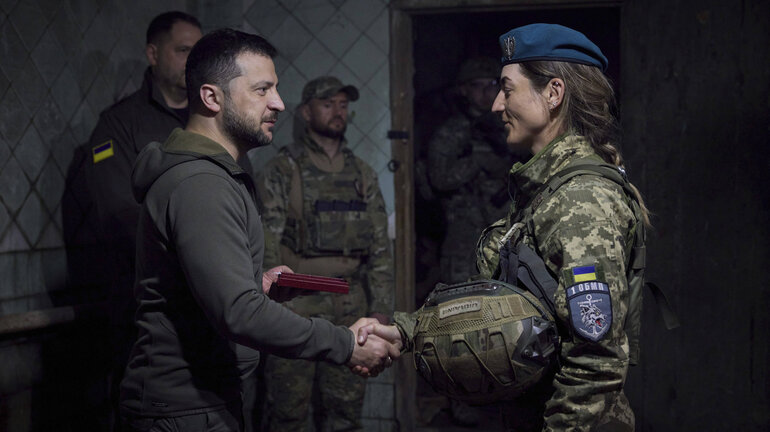The Instrumentalisation of Gender by Russian and Ukrainian Elites: Political Strategies and Their Implications for Feminist Civil Society
The Instrumentalisation of Gender by Russian and Ukrainian Elites: Political Strategies and Their Implications for Feminist Civil Society

Project description
Funded by: Swiss National Science Foundation – Ambizione programme
This project investigates why and how the Russian and Ukrainian political elites instrumentalise gender in order to legitimise their respective political systems vis-à-vis their allies; it also considers the implications of this for feminist civil society.
Russia’s full-scale invasion of Ukraine is a confrontation between two countries at different stages of (de-)democratisation: one is consolidating its system of authoritarian governance; the other is building democracy. In order to signal where their respective political systems stand, the Russian and Ukrainian elites frame the war explicitly as a conflict between different gender orders. Ukraine is committed to gender equality, while Russia emphasises its “traditional values”.
Key questions
-
Which discursive tools have the political elites in Russia and Ukraine deployed to instrumentalise gender questions since the full-scale invasion in order to secure external legitimacy for their respective political systems?
- How do these elites adapt their discursive strategies to different audiences?
- How are gender issues instrumentalised differently depending on the equality policy field in question?
- How does feminist civil society in Ukraine and Russia view this instrumentalisation and the impact it has on their opportunities and limits for advocacy in different gender equality fields?
Methodology
- Large Language Model (text analysis), with a focus on Telegram channels of several Russian and Ukrainian embassies and selected speeches by the two presidents since 2022.
- It is assumed that the two countries switch between four strategies – genderbashing, gendershushing, genderwashing and genderpushing – depending on the issue. Gender equality policies and proposals for new laws are therefore analysed to determine which of these strategies is being pursued at which point in time.
- Interviews with feminist activists in Ukraine and Russia (a minimum of 20 in each case, including some in exile).
![[Translate to Englisch:]](/fileadmin/media/_processed_/6/6/csm_Bias_2023__ZOiS_2_82d61dea87.jpg
)